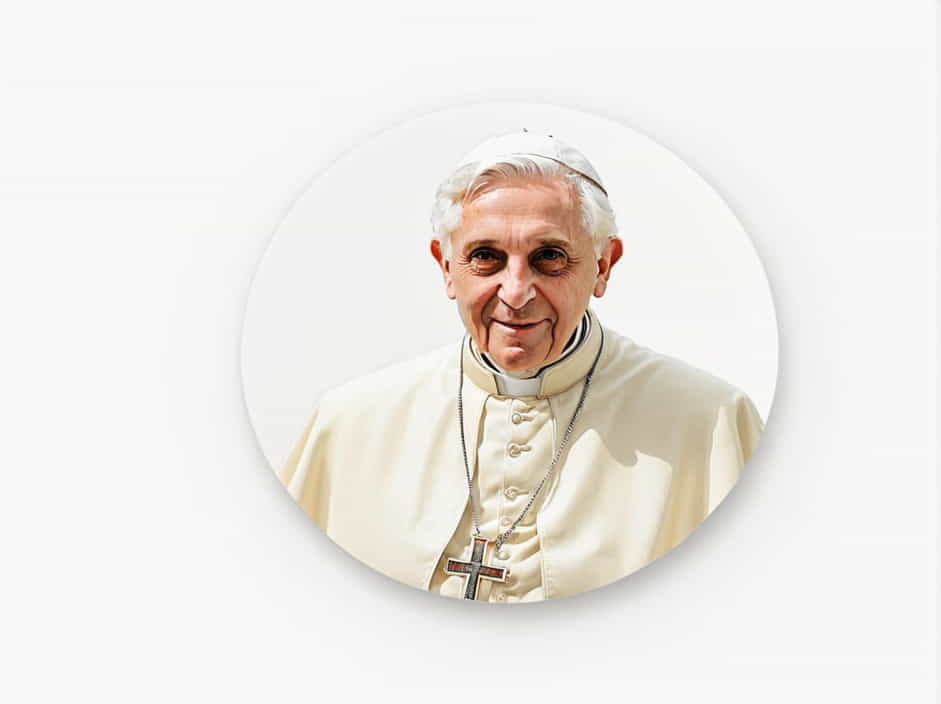Pope Benedict XVI was one of the most influential leaders of the Catholic Church in modern history. His teachings, writings, and theological insights continue to inspire millions of people worldwide. But what was his real name, and what was his life like before becoming pope?
This topic will explore the real name of Pope Benedict XVI, his early life, journey to the papacy, key contributions, and lasting legacy.
1. Real Name of Pope Benedict XVI
The real name of Pope Benedict XVI was Joseph Aloisius Ratzinger. He was born on April 16, 1927, in Marktl, Bavaria, Germany. Before assuming the papal name, he was widely known as Cardinal Joseph Ratzinger, a respected theologian and scholar.
The name Benedict XVI was chosen when he was elected the 265th pope of the Roman Catholic Church on April 19, 2005. His choice of the name was inspired by Pope Benedict XV, who worked for peace during World War I, and Saint Benedict of Nursia, the founder of Western monasticism.
2. Early Life and Education
A. Childhood and Family Background
Joseph Ratzinger was born into a devout Catholic family in Germany. His father, Joseph Ratzinger Sr., was a police officer, while his mother, Maria Ratzinger, worked as a cook.
He grew up during a turbulent period in German history, witnessing the rise of Nazi Germany. His family strongly opposed Nazi ideology, and their faith played a crucial role in shaping his worldview.
B. Education and Early Interests
From a young age, Ratzinger showed a keen interest in theology and philosophy. He studied at the Archdiocesan Seminary in Traunstein before continuing his education at the University of Munich, where he specialized in Catholic theology and philosophy.
In 1951, he was ordained as a priest alongside his older brother, Georg Ratzinger.
3. Academic and Theological Career
A. Professor and Theologian
After his ordination, Ratzinger pursued an academic career. He became a professor of theology and taught at various German universities, including:
-
University of Bonn
-
University of Mà¼nster
-
University of Tà¼bingen
-
University of Regensburg
During this period, he gained a reputation as one of the leading theologians of the 20th century, contributing significantly to Catholic teachings on faith, reason, and modernity.
B. Role in the Second Vatican Council
In the early 1960s, Ratzinger served as a theological advisor at the Second Vatican Council (1962-1965), a major event that aimed to modernize the Catholic Church. His work influenced important reforms in church doctrine and liturgy.
4. Journey to the Papacy
A. Appointment as Cardinal
In 1977, Pope Paul VI appointed Joseph Ratzinger as the Archbishop of Munich and Freising. Later that year, he was elevated to the position of Cardinal.
B. Prefect of the Congregation for the Doctrine of the Faith
In 1981, Pope John Paul II appointed Ratzinger as the Prefect of the Congregation for the Doctrine of the Faith (CDF). In this role, he was responsible for defending Catholic doctrine and addressing challenges to church teachings.
For over two decades, he worked closely with Pope John Paul II, becoming one of his most trusted advisors.
C. Election as Pope Benedict XVI
Following the death of Pope John Paul II in April 2005, the College of Cardinals elected Joseph Ratzinger as the new pope.
On April 19, 2005, he officially became Pope Benedict XVI, the first German pope in nearly 1,000 years.
5. Key Contributions as Pope
A. Emphasis on Faith and Reason
One of Pope Benedict XVI’s most significant contributions was his emphasis on the relationship between faith and reason. He encouraged dialogue between science, philosophy, and religion, arguing that faith and reason are not opposed but complementary.
B. Defense of Traditional Catholic Values
As a theologian, Benedict XVI was known for his conservative stance on Catholic doctrine. He defended traditional teachings on marriage, family, and morality, opposing modern secular influences that he believed threatened Christian values.
C. Strengthening Interfaith Dialogue
Despite his conservative views, Benedict XVI promoted dialogue between different religions, especially with:
-
Islam – Encouraging peaceful coexistence and mutual respect.
-
Judaism – Strengthening Catholic-Jewish relations.
-
Orthodox Christianity – Advocating unity between Eastern and Western churches.
D. Efforts Against Clergy Abuse
During his papacy, Benedict XVI took serious steps to address sexual abuse scandals within the church. He implemented stronger measures to investigate and prevent abuse, emphasizing zero tolerance for misconduct.
6. Resignation and Later Life
A. Historic Resignation
In February 2013, Pope Benedict XVI shocked the world by announcing his resignation, citing age and declining health. He was the first pope to resign in nearly 600 years, since Pope Gregory XII in 1415.
His decision marked a historic moment in the Catholic Church, paving the way for the election of Pope Francis in March 2013.
B. Life as Pope Emeritus
After his resignation, Benedict XVI adopted the title "Pope Emeritus" and lived a quiet life in the Mater Ecclesiae Monastery within the Vatican. He continued writing and praying while staying out of active church governance.
C. Passing and Legacy
Pope Benedict XVI passed away on December 31, 2022, at the age of 95. His funeral was held at St. Peter’s Basilica, attended by global leaders and religious figures.
His legacy remains deeply influential in Catholic theology, and his writings continue to be studied by scholars and believers worldwide.
Pope Benedict XVI, born Joseph Aloisius Ratzinger, was a theologian, scholar, and leader whose impact on the Catholic Church was profound. His emphasis on faith, reason, and tradition helped shape modern Catholic thought.
Despite controversies, his contributions to theology, interfaith dialogue, and moral teachings continue to inspire millions. His decision to resign demonstrated humility and wisdom, leaving behind a legacy of deep intellectual and spiritual insight.
As the Catholic Church moves forward, the teachings and writings of Pope Benedict XVI remain a guiding force for those seeking to understand and strengthen their faith.
